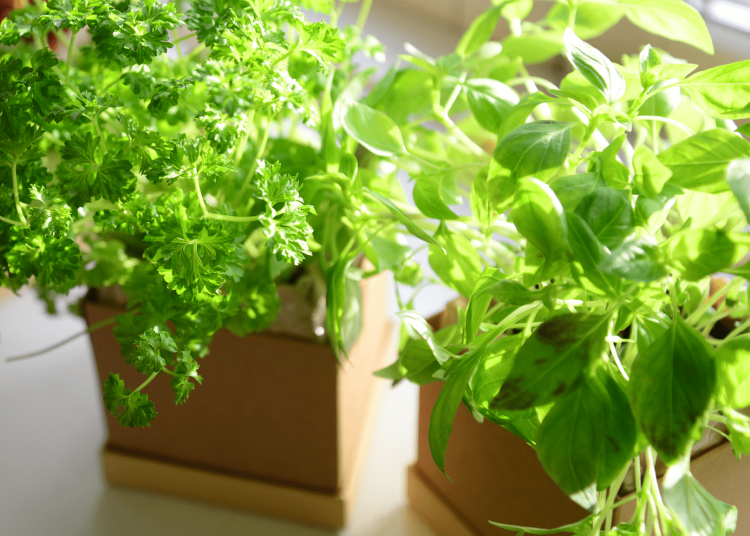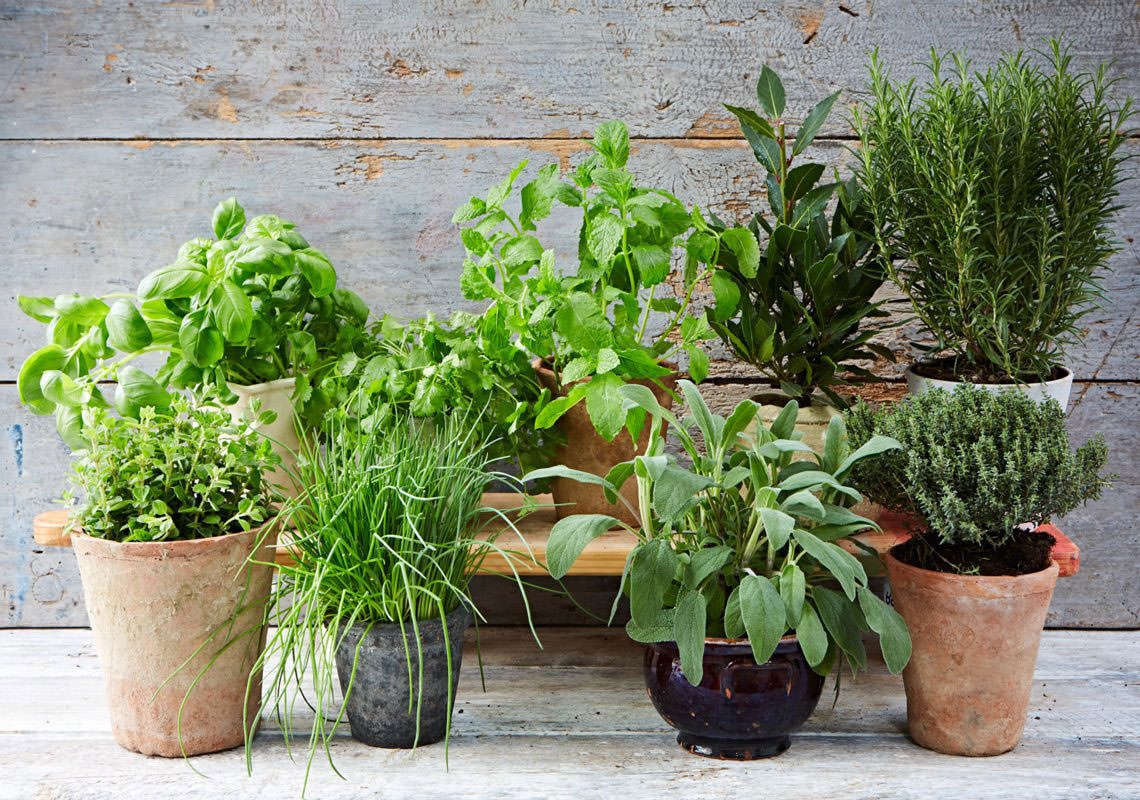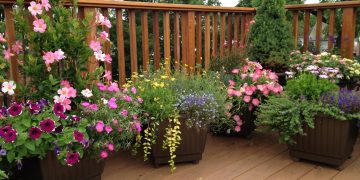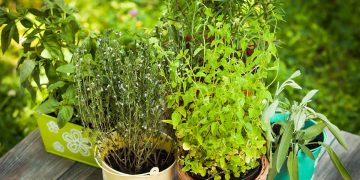Summer spoils us. One quick spin through the garden and we come back laden with a bouquet for the table and veggies for dinner. And the herbs, ah, the herbs! Mint for iced tea, chives for salads, dill for salmon, oregano for pasta sauce.
As the days get shorter and the temperatures cooler, you might think you must bid adieu to these fresh pleasures. But not so! The herbs at least can easily translate to the windowsill to delight us through the winter. You can grow them from seed or move them in from the garden.
Annual and biennial herbs work the best from seed, sown in late summer. These include basil, parsley, cilantro, dill, and chervil. Perennial herbs make great container plants anyway and can thus spend their summers on the deck and their winters indoors. You can also dig and pot divisions of perennial herbs growing in the garden. This is especially useful if indoor space is an issue – it’s easier to find room for small divisions tucked into 6-inch pots than big containers of mature plants.
To ease the segue from outdoors to in, first place potted herbs in a partly shady area outdoors for a few weeks before moving them inside, ahead of frost. Rosemary especially has trouble making the move from high light to low light, so you might want to add more transition levels – part-shade to shade to unheated garage to house. A few herbs, such as tarragon, chives, and mint, actually benefit from cool weather, which brings on a rest period followed by fresh growth. So leave these herbs outdoors until they’ve had a chance to catch some frost.
As with any plant anywhere, you need to create the right conditions, meaning light, moisture, and temperature. Indoor gardening has its particular issues, namely dry air, low light levels, and poor air circulation, especially with windows shut up tight the heating system on full blast, and weak winter sunlight.

To provide the best possible light, place potted herbs in a west- or south-facing window where they will get a good six to eight hours of sun. Occasionally turn plants so they get even light all around. (But don’t let leaves press against windowpanes which can be ice cold at night even in a warm room.) If light levels are still inadequate or you don’t have windows with the right access, growlights will do the trick, left on for 12-16 hours a day. For temperature, indoor herbs need 60-75 degrees F.
Air circulation can be improved by not packing plants too close together. Give them breathing room from their neighbors. A small fan can help stir the air, though not blowing directly at the plants. Herbs also need some humidity to counteract super-dry indoor air. One solution is to perch their pots on a shallow tray of pebbles and water. But don’t let the pots sit directly in the water or it will wick into the soil and plants will stay too wet.
While herbs are famous for being drought tolerant, your indoor herbs do need watering. Many of them (marjoram, oregano, sage, bay, thyme) benefit from letting the soil surface dry between waterings, though not to the point that the plants wilt. And never, never let rosemary dry out completely; after that, it’s nearly impossible to revive. Mint and lemon balm are unusual in that they like to stay evenly moist. To see if your plants need watering, there’s no better way than sticking your finger in the soil a couple of inches. Eventually you’ll become familiar with each plant and develop a watering routine.
The soil for indoor herbs absolutely must have excellent drainage. A good standard mix is two parts potting soil and one part perlite or sharp sand. (Even if your plants are dug from your garden, use this mix for potting, after gently removing as much garden soil as possible from around roots.) Many herbs prefer nonacid soil, especially basil, rosemary, and thyme, so a teaspoon of ground limestone per 6-inch pot is a good idea. Ground eggshells will work also.
Besides their culinary uses in cold-weather favorites like stews and stuffing, herbs can also help you combat winter’s chills as well as its ills. For nothing warms you up, clears sinuses, or soothes a sore throat like a piping hot cup of tea, especially if it has a touch of mint, thyme, or sage. Having fresh herbs on your windowsill means you’re ready for anything winter can throw at you.













